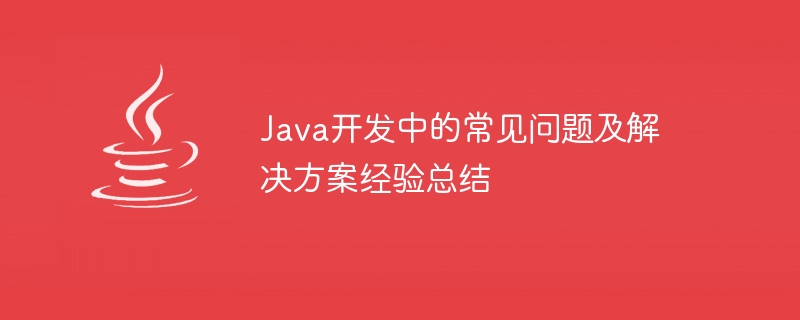

Experience summary of common problems and solutions in Java development
Introduction:
With the rapid development of the Internet, Java is widely used in software development The programming language has been favored by the majority of developers. However, in the actual Java development process, some problems are often encountered, which not only affect development efficiency, but also lead to application stability issues. This article will summarize common problems in Java development and provide experience in solving them, hoping to help readers better understand and solve these problems.
1. OOM problems and solutions
OOM (Out of Memory) problem is a common problem in Java development, usually caused by memory leaks or insufficient memory. . Solutions include:
2. Concurrency problems and solutions
Concurrency problems include deadlocks, race conditions, etc. Solutions include:
3. Performance problems and solutions
Performance problems are often caused by inefficient code writing. Solutions include :
4. Security issues and solutions
Security issues include code injection, cross-site scripting attacks, SQL injection, etc., which can be solved Solutions include:
Conclusion:
This article summarizes common problems in Java development from four aspects: OOM issues, concurrency issues, performance issues and security issues, and gives Appropriate solution experience. In actual development, we should pay attention to these common problems and improve the quality and performance of Java applications through reasonable planning and practice, thereby providing users with a better experience. At the same time, we must continue to learn and accumulate experience, make progress together with other developers, and contribute to the sustainable development of Java development.
The above is the detailed content of Experience summary of common problems and solutions in Java development. For more information, please follow other related articles on the PHP Chinese website!




